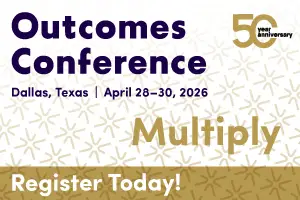Personal Mission Reflections by Dr. Teresa M. Moon
Back to Blog
Today’s post is from Dr. Teresa M. Moon, the Founding President/CEO of the Institute for Cultural Communicators (ICC). Teresa uses her doctorate in strategic leadership to develop people and cultures. Teresa is committed to continuous learning, fascinated by culture studies, energized by bold ideas and coffee, passionate about inter generational relationships and teams, and devoted to becoming a culturally relevant follower of Christ.
Teresa was enrolled in the CLA Online Academy module: CCNL1 Leadership. She is enrolled Christian Leadership Alliance’s Credential Christian Nonprofit Leader (CCNL) program. Dr. Moon graciously shares the reflection she submitted after session one of this 10-week online course.
Crafting A Personal Mission Statement
Reflecting on the material presented in this session of the CLA Online Academy module: CCNL1 Leaderships and the ensuing dialogue in this study of Christian leadership thus far I am reminded of the similarities between servant leadership and that of Ignatius Loyola and his followers the Jesuits. Former Jesuit seminarian turned successful investment banker, Chris Lowney, discusses leadership and followership in Heroic Leadership, a study of the 450-year old Jesuit institution whose practices, he asserts, are as relevant today as they were in Ignatius Loyola’s day.
In the Jesuit tradition, leadership is defined “not by the scale of opportunity but by the quality of the response.” This is a lot like the definition used for this session: “Leadership is a process of influence. Any time you seek to influence the thinking, behavior, or development of people toward accomplishing a goal in their personal or professional lives, you are taking on the role of a leader.” In this definition we can assess our leadership efficacy by the response of our followers, just as the Jesuits prescribed.
According to Lowney, “their [Jesuits] approach scraps ‘command and control’ models that rely on one great person to lead the rest.” Jesuits believe that every person possesses untapped leadership potential. The leader’s role is not to persuade subordinates, but to equip them to discern and accomplish what needs to be done. Through the Jesuit lens, leadership is a way of life. It is never accomplished; it is a lifelong pursuit.
I have been reminded that I too am on a journey in a lifelong pursuit of leadership. The process of developing a personal leadership mission statement has challenged me. I do think of myself as insightful, but I have struggled over the years to develop a statement that describes me – to me and to others. It’s so much easier to apply insights to other people.
This course’s definition of leadership, like the Jesuit definition, is more about who we are than what we do. If we embrace the Jesuit model of leadership in which everyone is a “leader in the making,” we must commit to mentoring “leaders in the making.” That serves as a reminder to me that, regardless of the number of people following me at any given point in time, I am still a leader in the making – and so are they. My personal leadership mission statement has helped me to consider this in a fresh way.
The intent of this session aligns with a contemporary leadership researcher and his findings as well. Coming alongside other “leaders in the making” sounds a lot like mentoring. As I reflected on my personal mission statement I considered one of my strengths – that of developing people. I was reminded that Goulet and his colleagues released the results of groundbreaking research in 2012. They studied the process of developing leaders through mentoring in which they posit, leadership is “a process that involves the interactions and relationships between the leader and others. This view of leadership enables anyone to develop as a leader.” Goulet’s team proffers mentoring as the best tool for equipping leader efficacy in both “being and doing” or in competence and character.
My personal leadership mission statement is written in the present tense, as we were encouraged to do:
I am a listening leader and insightful developer of people and communities as they are transforming through Christ’s love.
When I consider the ideas in this session, and those of early Jesuits, I am reminded I am called, as are all Christ followers, to lead others. We can influence better when we first make real connections with others. That requires listening. The Holy Spirit gives insight. For me that insight comes about as I listen to others share their thoughts, feelings, celebrations, struggles, praise, disappointments, disillusionment, and triumphs.
I do not see myself as fully exhibiting all that my personal mission statement declares. Yet, in articulating it I have a new metric by which to assess my own leadership daily. I know what I wish to be. I am reminded that I am not responsible for the transformation of individuals or communities. It is Christ’s love at work in and through me.
My organization’s mission is mentoring Christians to lead. Hundreds of students and adults progress through our mentoring programs each year. Some of our most advanced young leaders apply for an honors internship in which they travel the country providing education and coaching for their peers along with parents, teachers, and community leaders.
In short they are living out what the Jesuits and the CCNL course teach. As I write they are rehearsing a program entitled, “Communicate for a Change!” This can be nuanced to have multiple meanings. We do need to communicate better. That requires change. We need to communicate if we are to influence change.
As these teenage leaders explore this message they highlight that in order to create change we must first be changed. This reminds me of some of the changes I need to focus on in myself in order to better influence change in those I lead. I am eager to continue the journey.
####
Registration for the Fall CLA Online Academy closes on September 21.
Check out all that is being offered to develop the leader in you!
Featured Articles
CLA Membership
Join Christian
Leadership Alliance
A commitment to membership unlocks a more comprehensive access to content, community, and experiential learning. Here are the three membership exclusives that exist to significantly accelerate your professional growth and personal development.










